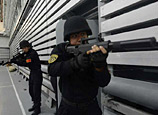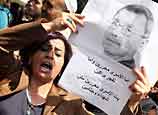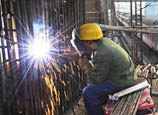
ROME, April 3 (Xinhua) -- Attempting to solve Italy's protracted political crisis while also preventing the country's problems from having a bigger impact on Europe's fragile economy, Italian President Girogio Napolitano met Tuesday with the committee of so-called "wise men."
The task ahead of them is a difficult one: find a path out of Italy's political impasse created when none of the coalitions won enough votes to take a majority in the upper house of parliament in Italy's national vote Feb. 24-25.
Pier Luigi Bersani, the pre-election favorite, won a majority in the lower house but his efforts to form a Senate coalition with former comedian and current political activist have been denied. Bersani, meanwhile, has refused overtures from three-time prime minister and billionaire media tycoon Silvio Berlusconi.
Last week, Napolitano asked Bersani to try to form a government without an alliance. But Bersani failed. Napolitano, whose term expires May 15, considered stepping down to trigger a series of events that would result in new elections, possibly triggering a new round of investor jitter so severe that Italian economist Mario Draghi, head of the European Central Bank, called to urge Napolitano to stay on the job.
The 87-year-old Napolitano -- possibly persuaded by Draghi's call -- decided against stepping down, instead forming a special committee make up of political and private sector leaders (dubbed the "wise men" in the Italian press) to look for a way to end the deadlock, sparking economic growth and continuing with the reform process started by the current caretaker prime minister, Mario Monti, with looking to make political reforms that would eliminate the chance of more gridlock when Italian return to the polls, most likely in the next six months.
It is not just Italy's political fate that hangs in the balance: with the health of the 17-nation euro zone already battered by the bailout plan and economic crisis in Cyprus, trouble in Italy -- the euro zone's third largest economy -- could be disastrous.
"The problems in Cyprus already set the euro zone on its heels, and each time the crisis hits a new economy the euro itself becomes less resilient," said Hildebrandt and Ferrar chief economist Javier Noriega. "But the problems in Cyprus or Greece are nothing to the size of the problems that would emerge from bankruptcy fears in Italy."
To be sure, such fears are far from imminent for Italy. But with the political deadlock now in its sixth week and the caretaker government led by Monti unable to take bold steps to confront the problems, each passing day increases the overall risk and contributes to investor nervousness across the euro zone.
Hopes are that Napolitano and his "wise men" will find a solution to the country's political problems sooner rather than later. If they fail to do so within the next six weeks, the country will face a new challenge: Napolitano's term will be up, and the process will start again with a new president that must be selected by the same deadlocked parliament unable to take action now. 
















 1,000-meter-long Spider Walk of Canton Tower opens
1,000-meter-long Spider Walk of Canton Tower opens


![]()
